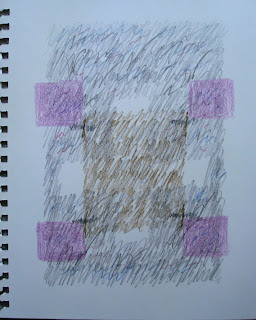These last days of April, these first days of May, what I most need to cultivate is patience.
The garden’s
awake, and something new is stirring every day, if not from hour to hour. The clumps of Tulipa tarda whose buds I first noticed just this
morning had started to open in the sun by early afternoon. Two days ago, I wondered
what had happened to the lily-of-the-valley. Today the shoots are coming up
everywhere, reminding me they’re an invasive species, and the last thing I have
to worry about is that they’d ever die out. I didn’t even remember planting wild ginger by the front walk last year, until yesterday I saw the leaves an inch above
the soil, looking like the wings of a pale green moth still unfolding from the
chrysalis.
The longing
for new life is almost more than a dedicated gardener can sustain, once the
winter is truly over and past. The nearby nursery is already stocked and
waiting. I can’t bear the suspense until it’s clearer, two weeks from now, what’s
come through, what’s flourished, what didn’t make it and needs replacing. Three
years after moving into this house, I still don’t completely understand what
will grow in this soil, in this much shade, between the roots of long-established
trees. Every season thus far has involved trial and error. My impatience is
equal parts eagerness to see what’s in store and a fantasy of what I want to do
next with the tiny front and back gardens of a downtown Toronto house. Thank
God I don’t have an American Midwestern quarter-acre to contend with.
My unwillingness to wait on the garden around me reminds me of the impatience we’re
capable of showing toward the garden within. When I hear friends who long for personal growth berating themselves over their lack of progress,
over their loops back into earlier patterns and habits, over their inability to
map a clearly defined path forward, my prayer is that they can offer themselves
a little more of the lovingkindness I’m confident they'd extend without hesitation
to someone else.
Like I should
talk--like I’m not equally capable of smacking myself for not becoming an
overnight boddhisattva.
Patience in
the garden is like the balance of Wisdom and Compassion that we need in order to thrive,
and in order to allow others to thrive.
It’s also
like the patience called for in Matthew 13:24-30--the parable of the weeds
among the wheat. There, the owner of a field tells his servants not to risk
pulling up the crop by mistake before harvest time. The subsequent explanation of that
story, ascribed to Jesus by the Gospel writer, reads like a judgmental othering of the
people on the wrong side of a moral divide. I’m inclined to think of that
exposition, though, as a later addition that obscures, even reverses, the real point. At its core, the parable is a story of the garden of
our souls, and we’re cautioned not to fuck up the process of growth and unfolding
by trying to exert control. We don’t need answers
before the fact. We just need respectful curiosity and the patience to wait--and
gratitude when the results manifest themselves in their own time.









